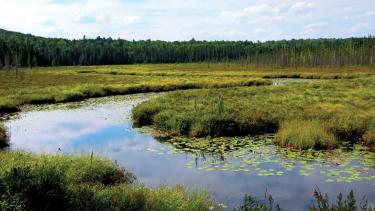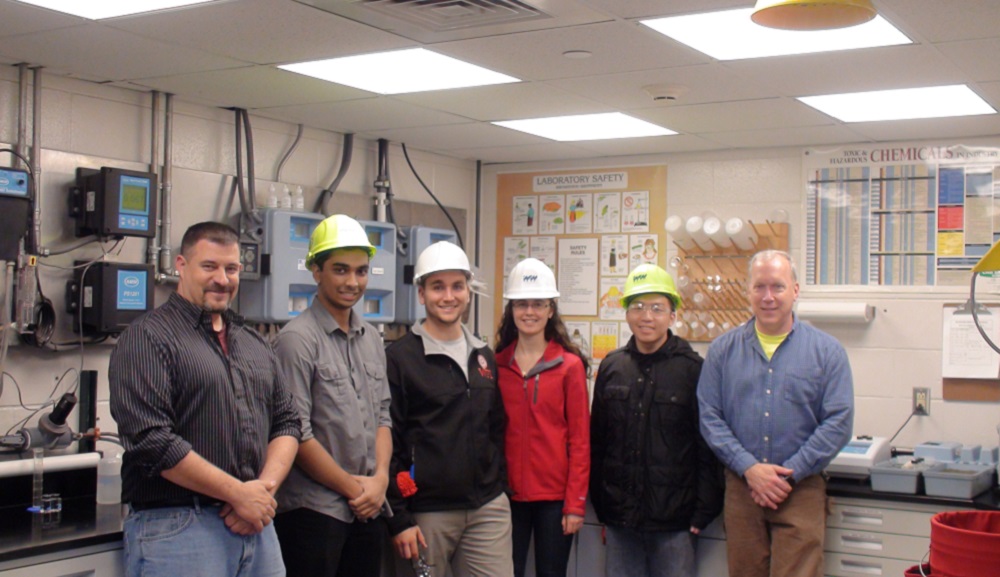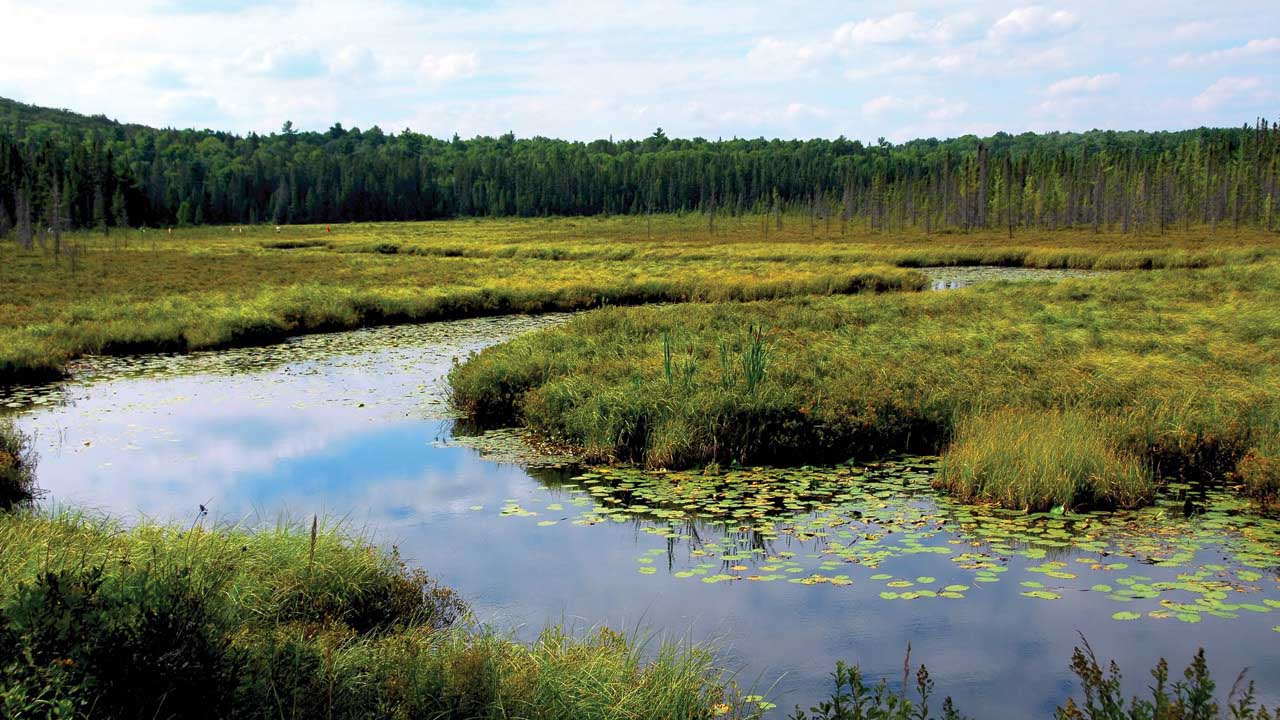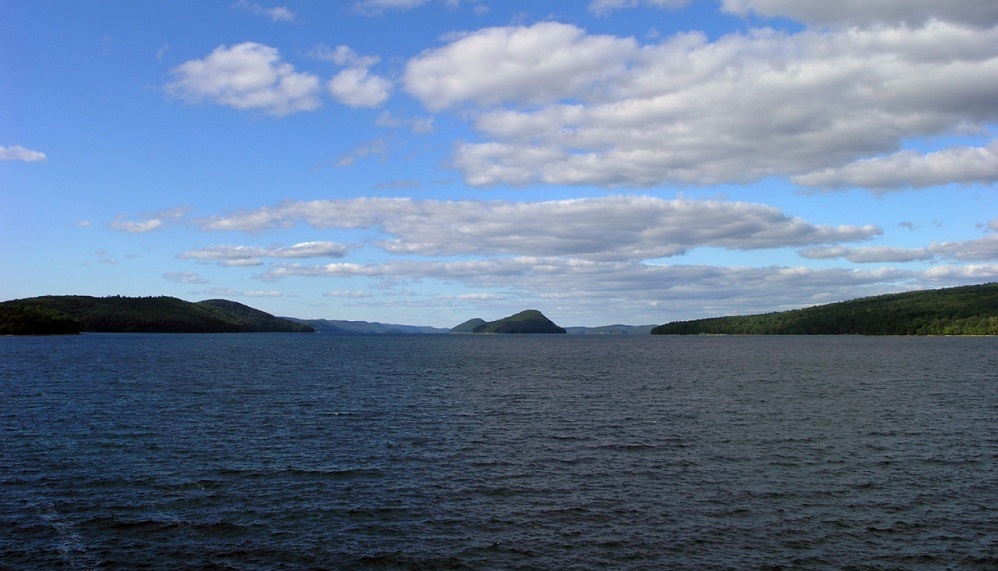• Recently, the town of Leicester got some assistance identifying the challenges faced by its three water districts, as well as an analysis of available improvements to meet water quality standards and demand.
This technical expertise didn’t come from any state or federal agency, but from students working as part of a new project center formed at WPI. The Massachusetts Water Resource Outreach Center (WROC) is dedicated to assisting Central and Eastern Massachusetts municipalities and watershed associations with water resource protection.

Corey Dehner
The Center is the result of the collaboration between assistant teaching professor Corey Dehner, of the Interdisciplinary and Global Studies Division, and Paul Mathisen, an associate professor in the Civil and Environmental Engineering Department. The two are currently co-directors of the center, which is affiliated with WPI’s Worcester Community Project Center and the Boston Project Center.
Dehner is a former public interest lawyer who has a passion for environmental protection. She also is director of the Worcester Community Project Center (known as a “center for community empowerment and environmental responsibility”), which facilitates student projects on WROC projects and often gives students insight into local politics, federal laws, agency oversight, pressing water resource protection issues in our state, and social justice and environmental issues in Worcester. When asked how her interest in drinking water began, she cited her experiences with Massachusetts municipalities while working toward her PhD at Northeastern University. She recalls seeing firsthand how resources were stretched to the point where vital communications among municipal utilities broke down, resulting in problems. For example, one phosphate treatment situation at a utility led to corrosion in metal pipes, resulting in a 50 percent water loss before being discovered. The town did not have a way of disseminating this information to other municipalities.
Mathisen is an environmental engineer who has always had an interest in water resources management and protecting the environment. That interest has led to a variety of projects involving analysis and design to control of water quality in groundwater and surface water. His recent work involves advising research and student projects addressing analysis, design, and policy for stormwater control. He also co-directs the Boston Project Center, which emphasizes projects sponsored by Boston-based organizations to protect the environment and promote sustainability, addressing areas such as energy, transportation, and water. Students have recently completed projects with the city of Chelsea to plan for climate change impacts by determining flood levels and assessing the impact on several facilities owned by the city for selected climate change scenarios, and also with the Massachusetts Department of Environmental Protection (MassDEP) and three towns to develop a framework for assessing the impacts of road salt on public water systems in Massachusetts.

Paul Mathisen
Dehner approached Mathisen about her idea for the WROC because of his background in civil and environmental engineering, his interest in collaborative approaches to solve water resource problems, and, more specifically, his expertise around water management. She was familiar with the Nonpoint Education for Municipal Officials (NEMO), established at the University of Connecticut in the early 1990s. NEMO is a forum to provide information, education, and assistance to local land use boards on how to tackle pressing land use decisions, largely relating to stormwater management, while protecting their natural resources and community character.
Dehner applied for a grant to operate a similar program for Massachusetts, to be run out of WPI, and WROC was born.
The WROC builds on the NEMO concept by making use of student projects to provide assistance and support for communities with needs for addressing challenging water resources problems. The Center focuses on water resources protection, acting as a repository for information for Eastern and Central Massachusetts municipalities. Dehner says that the nonregulatory status of the WROC makes it an easy ally for municipalities, government agencies, and watershed associations.
The WROC currently facilitates two to four IQPs per year for third-year WPI students completing their requirement for a community based, social science research project. Beginning in the 2017-18 academic year, the WROC will facilitate four to six water projects every D-Term. Each of these projects is to be completed by teams of three to four students. For seven weeks, the students will work on the projects full-time, or for 40 to 50 hours per week.
WROC projects often give students insight into local politics, federal laws, and agency oversight and pressing water resource protection issues in our state.
The WROC regularly collaborates with the Massachusetts Department of Environmental Protection (MassDEP), the Central Massachusetts Regional Stormwater Coalition, the Massachusetts Watershed Coalition, and a number of other organizations so they can identify issues and communities with the greatest need for assistance. In the first year of its existence, the two directors have formed partnerships and given presentations before the State Coalition of Watershed Coalitions and at local governmental agencies.
Dehner and Mathisen are always looking for new opportunities for their students to learn—and make an impact–through other water-related projects. Recently, they worked with the town of Leicester to provide alternate approaches to its water management issues. Students are also working with MassDEP and a number of communities in Central and Eastern Massachusetts to develop cost-effective approaches to meet stormwater regulations that were recently established to protect water resources. Future ideas depend on environmental and municipal needs. They expect that in the near future, students will hold conferences, produce workshops, and prepare tutorials and publications for the water-related education of Massachusetts municipal workers—and beyond.
For more information, see the WROC web site, wp.wpi.edu/wroc.
- By Barry Hamlette



